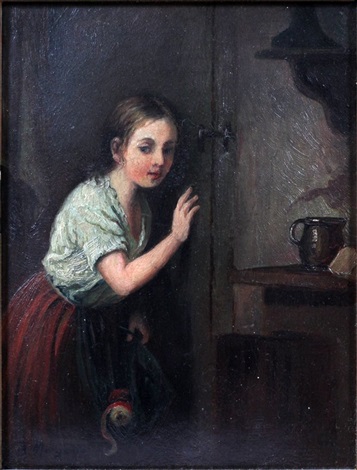Get Today in Masonic History into your Inbox. Sign up today for one of our email lists!
Need an article for your Trestleboard/Newsletter see our Use Policy
Cowans and Eavesdroppers

Today in Masonic History we discuss Cowans and Eavesdroppers.
Cowans and Eavesdroppers are two common names used in Freemasonry.
We can't have a masonic meeting without those words. As Freemasons we are reminded on a regular basis to be on guard for both. But what are they really? The etymology of both words are lost to time, so let's look at each of them.
First Eavesdroppers. The origin of the word is believed to refer to the water dripping from a roof, or eaves drippings. If you have ever seen a house or building without gutters, there is a line around the structure where run off has eroded the ground. The idea of an eavesdropper came from someone who stood so close to the structure they were on or inside the line and able to hear what was going on inside the house or structure. Another definition of eavesdropper, possibly due to Henry VIII, were people who hid up in the beams of the house by the eaves.
Henry VIII had wooden figures carved and placed in the beams of his palace. The idea was to make all in his court feel like they were being listened to and the information was being reported back to the King. This may have something to do with the fact in old lodges, the Deacons were charged with checking the rafters of the meeting room with their staff. Making sure no one was listening and unlawfully obtaining the secrets of masonry.
Ironically a Cowan could very well be a successful Eavesdropper. The origin of the word Cowan is believed to be old Scottish. A Cowan was a person, often someone who worked as an operative mason, who was not part of a lodge and not formally trained. Extending from the fact operative lodges were trade guilds (unions), a Cowan in modern terms is a "scab", someone who either refused to join a union or in some way went against a union. A Cowan is any individual who presents themselves as a Freemason, having never joined the Fraternity. In a real sense a Cowan is a clandestine Mason. A Cowan may have all of the right answers to be able to get in the door of a lodge room.
Albert Mackey stated in Mackey's Encyclopedia of Freemasonry, a Cowan was a word uniquely Masonic in it's origin.
Regardless of the origins of the words, Cowans and Eavesdroppers for Freemasons might as well be one word. It reminds us of our obligations to the fraternity and to remind us we should be careful of who we let into our lodge room, and by extension those we let into our life.
This article provided by Brother Eric C. Steele.

